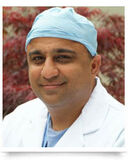Frustration, Nerves, Leaking Heart Valves, Test Results And Non-Surgical Options
By Adam Pick on August 9, 2008
Dan, from California, wrote me an interesting email that I could relate to whole-heartedly. Here is Dan’s email and my response:
Adam,
I have always been very healthy, normal blood pressure and EKG, no problems. I am 65, low cholesterol, slender, no health history problems, and I do not smoke. Body scanning reveals no blockages.
After noticing some breath shortness after briskly walking, my doctor suggested a stress echo EKG test, which I had done yesterday. The tech and the doctor administering the test wouldn’t say anything, other than the tech saying the pictures appeared okay – a “good squeeze”.

The doctor who is going to interpret and advise me CANNOT SEE ME FOR 10 DAYS, so I am nervous about this. The technicians who did the test would not spend any time explaining the results. I’m so frustrated. If I have a client in and review his facts, I don’t tell him to wait ten days for my conclusions and suggestions, leaving him in a state of alarm, I tell him on the spot. I think these guys should have told me something, but this is the way our society has developed these various practice disciplines, so now I am waiting.
As for my job, I don’t want to pass up new work, but I don’t want to take on a year’s worth of projects if I am going to be laid-up after valve repair or related surgery. Discussions on this process and the disability period are discouraging. I am self-employed and if I don’t work, the income stops.
Can a “leaking valve” just be followed and observed for a period of time and at what point is the surgical repair/replacement required? Are there any non-surgical options? I haven’t found anything but observation and monitoring which really isn’t a treatment, just a deferral.
If something pathological or of major concern was in those pictures from the echo test yesterday, wouldn’t the doc and the tech have sent me immediately to the hospital or told me to see the cardiologist pronto?
Thanks, Adam, for whatever comments you can make.
Dan (from Los Angeles)
HERE IS MY RESPONSE TO DAN:
Hi Dan,
Thanks for writing and sharing your story with me.
So you know, I completely understand your frustration with the medical system. I could tell you a story about paying for my heart surgery that you would never forget. (Imagine signing a credit card slip as you are being rolled into the operating room! Yes, that really did happen.)
Remember, you are your best advocate to navigate through the medical system and get the information you need to make the right medical choices at the right time. I’m sure you are finding there is a lot of choices to be made specific to heart valve surgery.
As for a non-surgical approach to fixing a leaking valve, I’m afraid I don’t have much to offer you on that one. At this point in your life, regeneration of tissue to enhance valve performance is not readily or physically possible (at least from my research). While stem cell research is showing promise, that use of stem cells is about five years away.
It sounds to me like (i) you need to get your test results back, (ii) ask your cardiologist A LOT of questions and (iii) get a second opinion to confirm the diagnosis. Like you, I’m a businessman. The last thing I wanted to do was pass up new work on account of my valvular defect forcing a heart valve replacement recovery. However, looking back on it, that decision was the best move of my life.
I wish you well.
Keep on tickin!
Adam
|
Leslie says on August 10th, 2008 at 4:43 pm |
|
Hi Adam and Dan |
 |
|
Barbara Girga says on August 10th, 2008 at 7:04 pm |
|
I have just been given an echo…and the cardiologist immediately said I was to have a heart catherization to see where the problem is. I have heard the words ‘leaking valve’ so that may be the cause. I will trust my cardiologist to do what is necessary to make me well again, as I have no energy, am out of breath constantly, fatigue is unbearable and naps are getting ridiculous. Life isn’t fun this way, and I praise my cardiologist for taking immediate steps for further examination and then whatever else is needed. How difficult it must be to have a cardiologist not jump right onto the next procedure needed. I had a primary care doctor, and left when she said my heart murmur was getting worse, and then did nothing further. She said I have only asthma, and no heart problems. The new doctor took one look at me, and heard my breathlessness, and within two weeks had me being examined by specialists. I don’t know the outcome yet, but if in doubt, ask your docto/cardiologist for further information. YOU are paying him, not the other way around, so be assertive. |
 |
|
Winona Blake says on August 12th, 2008 at 12:13 am |
|
Hi Adam and Dan, I am now sending my records for review at Cleveland Clinic, hoping to have the robot assisted Mitral Valve repair (both leaflets) for acute severe regurgitation. I was asymptomatic with a genetic MVP that had been stable. Evidently I ruptured a chordae between the echo June 11 and the TEE July 7th. Now I have shortness of breath, activity fatigue, lightheadedness, etc. Am looking forward to getting the repair and getting back to my active life. |
 |
|
Lorraine says on August 22nd, 2008 at 3:53 pm |
|
I am 48 years old. Last year, my heart murmur was a grade 2. This year my heart murmur was found to be a grade 3. My general practitioner sent me for an echo cardiagram. When I called the office to find out the results, the receptionist told me that the echo showed that I have 2 leaky heart valves and that is not uncommon. How concerned should I be? Should I request the results and bring it to a cardioligist for review. My cholesterol has been 206 with a very good ratio. I workout approx. 4 times per week doing an hour of cardio at each session. My internist sends me every 6 months to make sure my cholesterol does not go higher. However, there is a history of heart disease in my family. My brother had a triple bypass at the age of 47. |
 |
|
Dan Miller says on December 15th, 2008 at 11:44 pm |
|
Doctors are hoping to be able to replace valves in a cath lab. In 2004, my heart specialist at Barnes-Jewish St. Louis said they were doing this in England. In 2007 he said they were starting to do it in the USA. |
 |













